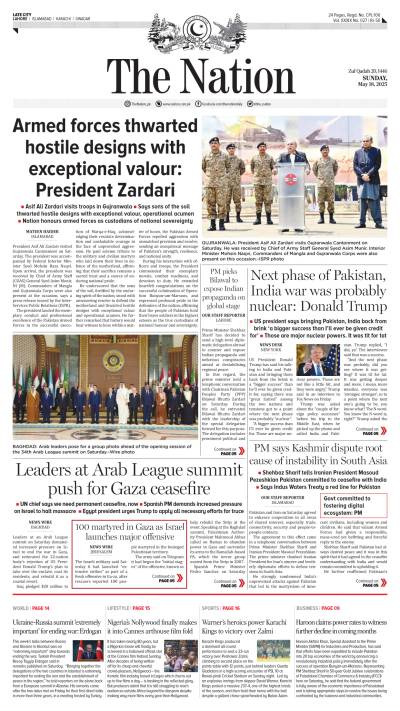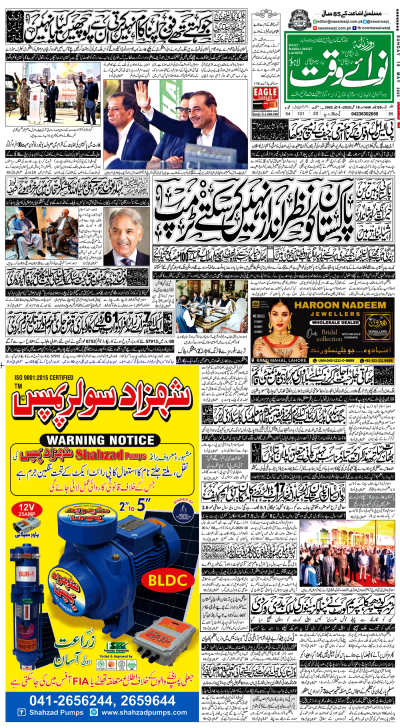Nearly three weeks after the presidential election in Iran the dust raised by the losing candidate, Mir Hossein Mousavi, alleging massive fraud has not still settled, and the streets of Tehran and some other towns of the country continue to witness protests by his supporters and the police action against them. But does that signify that the decisive win of the incumbent, Mahmoud Ahmadinejad, was the result of rigging engineered by official agencies? Or is the US, which has failed to bend Iran to its will in the past 30 years and is now accusing it of nuclear ambition, at work applying its interventionist technique of 'regime change', a somewhat subtle way of putting in place a ruling elite with a favourable perspective? In the first instance, one feels intrigued that the West, which only casually comments on the purely cooked-up election results, for instance, in Egypt where a friendly leader has been in charge for so long, has risen with one voice in support of the protesting crowds and is constantly propagating the view that Mousavi has been cheated out of his legitimate right, without regard to the other version of the story. The suspicion of Washington's machinations that this zealousness to see Mousavi declared the winner creates is reinforced by more solid evidence of its involvement in the current Iranian turmoil. And when well-informed and highly respected persons like Paul Craig Roberts, who was Assistant Secretary in the Reagan administration, author of books and contributing foreign editor for Sun National Media Canada Eric Margolis, and writer analyst James Corbett cite facts and figures that tend to justify the conclusion of US involvement, it becomes hard to dismiss the charge. The history of intense hostility between the US and Iran has led the former to play its usual game of destabilising the 'recalcitrant' regimes. The Bush administration, as the sole superpower assigning itself the right to have governments of its choice in countries considered hostile, made no secret of its plans. The Congress sanctioned $120 million for 'anti-regime media broadcasts into Iran' and another $75 million to strengthen opposition forces. One of its hawkish officials, John Bolton, is on record having said that a military attack on Iran would "be the last option after economic sanctions and attempts to foment a popular revolution had failed". There could, therefore, be little doubt about the view that the current propaganda and disinformation campaign about Iran is being carried out in pursuit of that policy. The argument that President Barack Obama has entered the White House with a different outlook about relations with the outside world, including Iran, and has even been accused by the Republicans of not being critical enough of the scenario in Iran has yet to be played out in reality. Another point raised by Mr Roberts about the situation on the ground is indeed very pertinent to the argument of American interference. He quotes Kenneth Timmerman of the Foundation for Democracy, which is allied to the National Endowment for Democracy (NED), as saying that the NED provided funds to "pro-Mousavi groups who have ties to non-government organisations outside Iran". Similarly, other aspects of the propaganda against Ahmadinejad are quite revealing and tend to point a finger at the disinformation campaign. Mr Corbett points out, "on June 13th, 30,000 tweets began to flood Twitter with live updates from Iran, most written in English and provided by a handful of newly-registered users with identical profile photos," and the same day the Jerusalem Post carried a story about how widespread this phenomenon was. Now, let us have a look at certain really persuasive arguments that Ahmadinejad's victory was not the result of a 'massive fraud'. These arguments have been well marshalled by columnist Esam Al-Amin. If we were to discredit the 30-odd locally conducted pre-election polls, which on an average gave him 21-point lead over his immediate rival Mousavi, let us turn to the only poll commissioned by a western organisation (BBC and ABC News) and conducted by the Centre for Public Opinion, which has a wide experience of conducting such polls. Ahmadinejad, according to it, enjoyed a nationwide advantage of 2 to 1 over Mousavi. Even in his home province Mousavi had the support of only 16 percent as against Ahmadinejad who was backed by 31 percent. The cries of fraud from the West citing the example of Mousavi's defeat on the home ground were, therefore, hardly justified. It has been aptly said in response to this argument: "had Al Gore won his home state of Tennessee in 2000, no one would have cared about a Florida recount, nor would there have been a Supreme Court case called Bush vs Gore." As against the CPO poll's prediction of 89 percent turnout, 85 percent of registered voters came out to cast their ballot. The incumbent president bagged 24.5 million (62.6 percent) against Mousavi's 13.2 million (33.8 percent), more or less corresponding to the indication in the CPO poll as well as the victory of Ahmadinejad over Hashmi Rafsanjani in 2005. It is baffling to an independent observer that while Mousavi should be announcing his 'definite' victory while the votes were still being cast he accused the government of declaring the results too soon after the polling had ended. Al-Amin has gathered figures to prove that the counting should not have taken more than an hour or two. Countrywide, there were 45,713 ballot boxes in which 39.2 million votes were cast, averaging less than 860 per box, and the Iranian public had to make just one choice unlike in many other countries where a number of candidates for different posts are elected. It becomes patently clear from the above analysis that the US has a key role in creating the current turmoil in Iran. The Iranian youth might be looking for their country to turn into a more liberal society but the reality is that the presidential election held according to the procedure laid down by Iran's ruling religious leadership has thrown up Ahmadinejad as a decisive winner. E-mail: mqkay@yahoo.co.uk
Monday, May 19, 2025
Is 'regime change' at work in Iran?
-
Lahore emerges among safest global cities in Numbeo 2025 index
-
Lahore emerges among safest global cities in Numbeo 2025 index
-
India’s suspension of Indus Water Treaty legally baseless
-
Seventh polio case reported in Pakistan amid nationwide vaccination drive
-
Pakistan reports sixth polio case of 2025
-
PTA begins issuing VPN licences to regulate usage
Culture Shift
May 18, 2025
Tactical Shift
May 18, 2025
Unmasked Cruelty
May 18, 2025
India Isolated
May 17, 2025
Descent into Hell
May 17, 2025
Pakistan’s Strategic Edge
May 19, 2025
Lessons for India
May 19, 2025
Galiyat’s Poor Network Services
May 19, 2025
A City in Neglect
May 19, 2025
Rising Cost of Living
May 19, 2025
ePaper - Nawaiwaqt
Nawaiwaqt Group | Copyright © 2025





